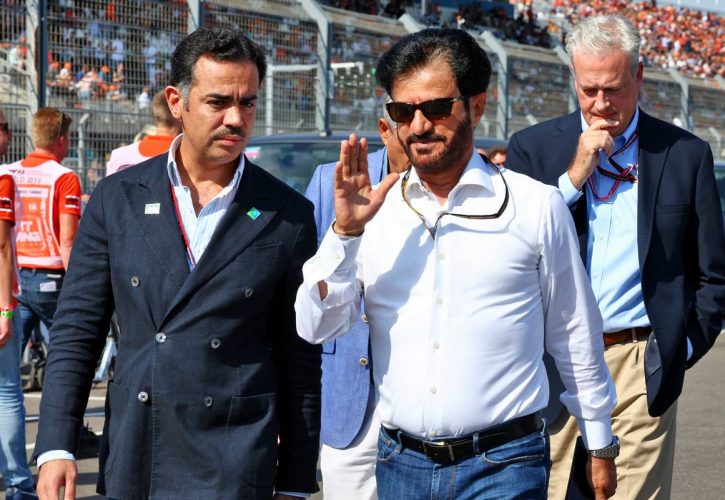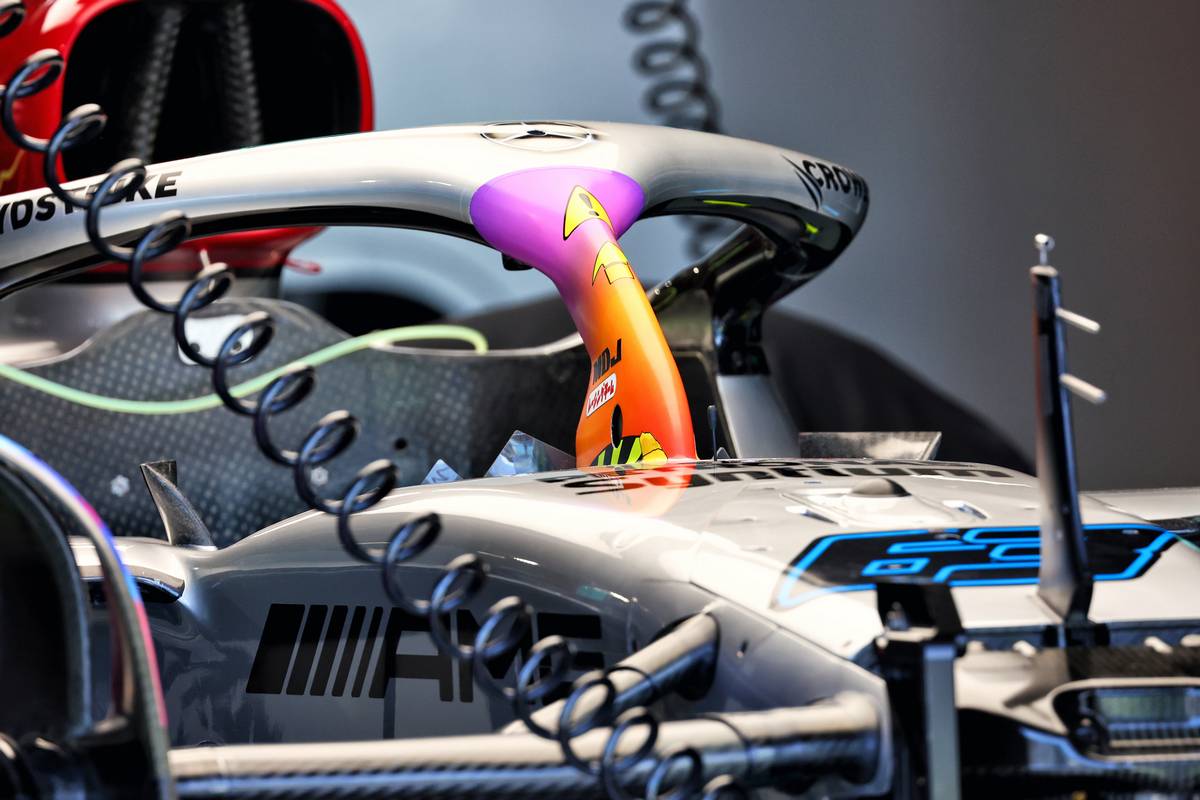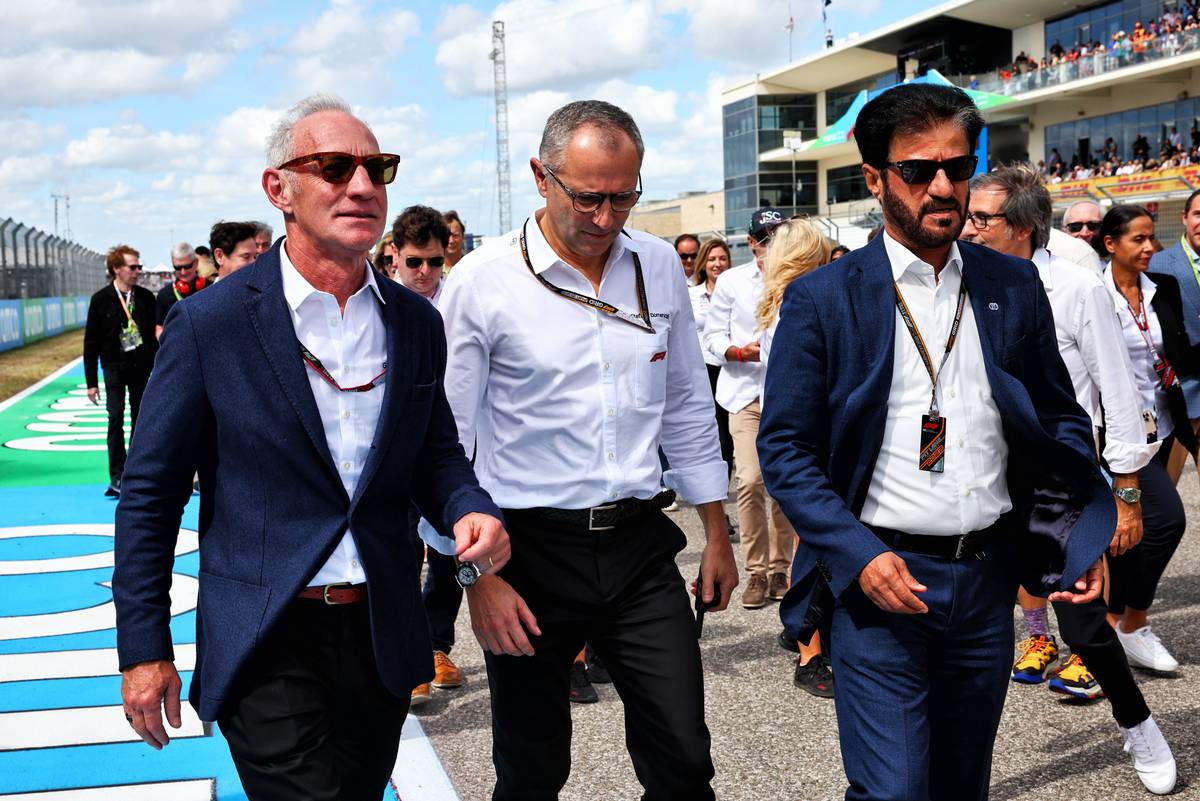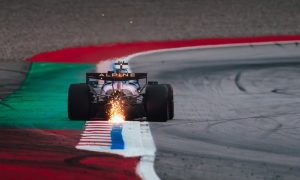
FIA president Mohammed Ben Sulayem has revealed that his first order of business when he took office a year ago was to deal with an unexpected legal case and a $20 million cash deficit!
Ben Sulayem conducted a strong and successful campaign to become the successor to Jean Todt who spent twelve years at the helm of the FIA.
But when the Emirati entered his presidential office at the Place de la Concorde in Paris a year ago, he was greeted by his legal team and by the FIA's accountant.
It appeared that the FIA, under Todt's guidance, had developed and then imposed the Halo cockpit protection device in Formula 1, and eventually in every single seater category that it sanctions without, without holding a legitamate patent on the mandatory component.
This led the Halo's creator, one Jens H. S. Nygaard, to haul the FIA in front of a court of law in the United States for a potential patent infringement.

The case was eventually settled, but it was a time consuming affair for the FIA's new president at a period when there was so much to handle, especially in the wake of the crisis suffered by the governing body after F1's controversial finale in Abu Dhabi in 2021.
"Imagine yourself being elected in the role after all these years of trying, everybody having a party on the night of the 17th (December), then you go to the office on the 18th and at 10 o’clock in the morning, the first thing you meet is your legal people and they say you have a big court case with the halo," recounted Ben Sulayem, quoted by Motorsport.com.
"We cannot talk much about it, but the feeling I had was not good. But you go on, it’s huge but I’m very happy that a month ago that was cleared.
"It was a big burden on my shoulders, because as president, it would have affected us in a very legal, financial way. Now it’s behind us, and the halo is patented to the FIA, so that’s good."
Read also:
But during his first year on the job, Ben Sulayem also had to contend with an unexpected financial black hole worth a hefty $20 million that had been left by the FIA's previous administration.
"There was a financial issue that we didn’t know about," he said. "We had a deficit, even before the pandemic, but I’m pleased to have cleared that."
The unforeseen significant cash deficit encouraged Ben Sulayem to rethink the FIA's management structure and to hire a chief executive officer, with former Volvo, Nissan and DaimlerChrysler executive Natalie Robyn appointed last September.
"We never had a CEO for 118 years. And if we want to deal with the challenges that's going on, I cannot go and micromanage," explained Ben Sulayem.
"When you go to the CEO, you're talking about policies, you're talking about managing the structure, you're talking about day-to-day running of the FIA, and you're talking about the finance.
"We all know and I'll be very honest with you, we had an issue with the finance. We had a deficit this year, which was over $20 million. I'm very happy to know that even with it, we never stopped any of the support of the grants or the efficiency of the FIA towards any ASN or any club. And we're still saving."

Ben Sulayem's priority during his first year in office, beyond extinguishing a couple of raging fires, has been to study and to learn about the FIA's inner working, and then to undertake structural changes to the institution.
While much has been achieved, the governing body's leader says that improving is a never-ending process.
"It has been one year of learning and one year of studying what's going on, not just in the Formula 1, but in the FIA in general," said the 61-year-old.
"As you know, we have a very unique sport. When I talk to our colleagues in football, I say, what you have is a bit easier. You have two sides in football, you have one size of a football goal, and you have one ball.
"But here, we have just one small discipline that has so many configurations, is always evolving and always changing depending on a lot of factors. I mean, even if you look at the economic factors, the social factor, everything is changing. So the challenge is there,
"I don't think we can address just one regulation and leave it and then say that's it, we fixed it. We are always open to suggestions, we always learn from the drivers, we learn from the teams, we learn from ourselves. So the process of evolving is always there.
"It hasn't been easy. We had a few of the issues, but there is no blame game. I feel that, with the right people, we are in the process of improving the sport."
Keep up to date with all the F1 news via Facebook and Twitter







